

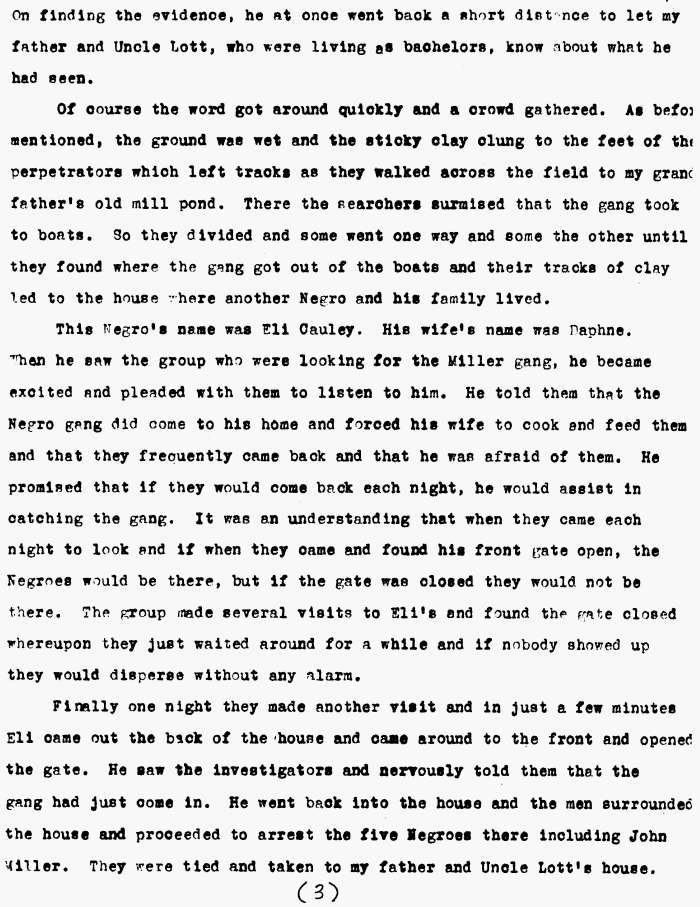
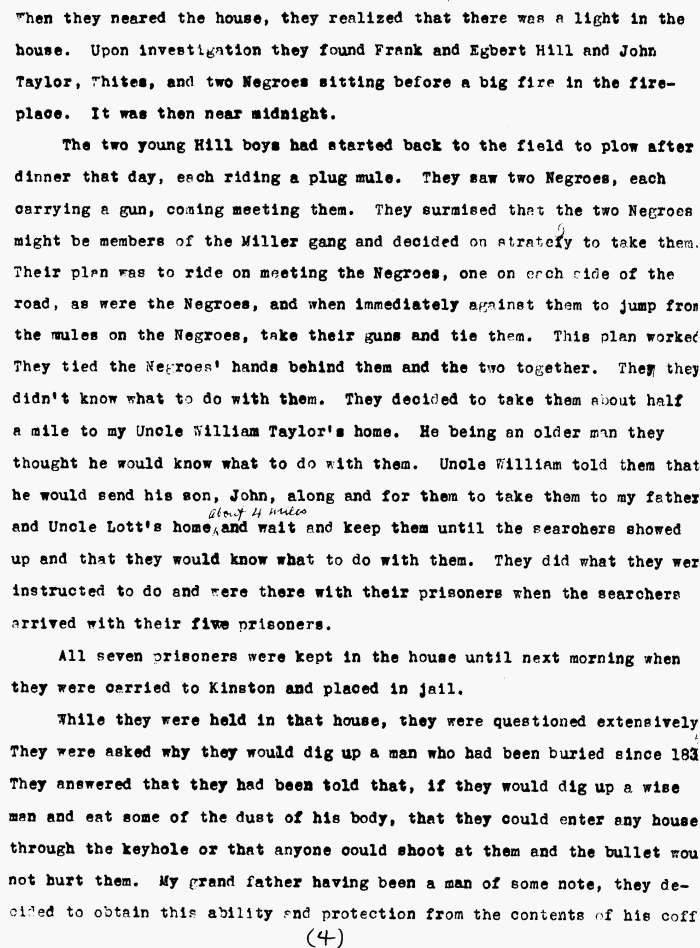
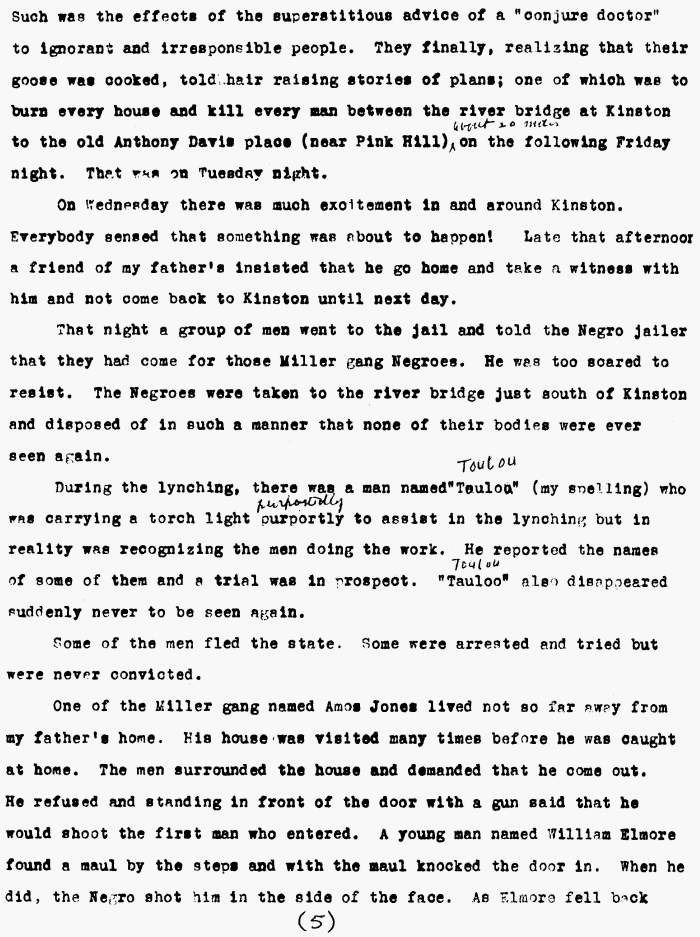

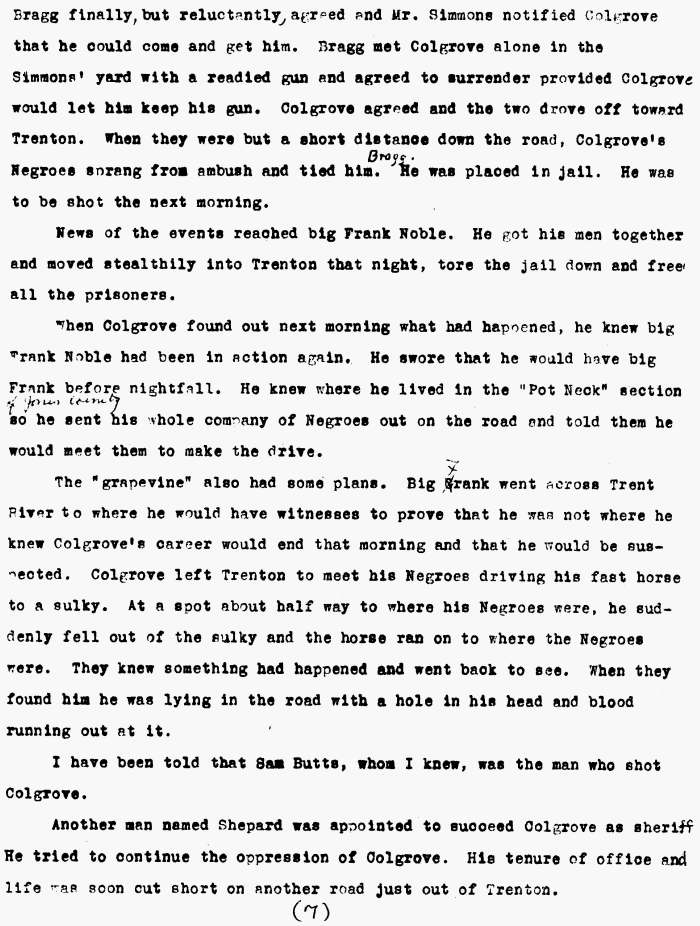
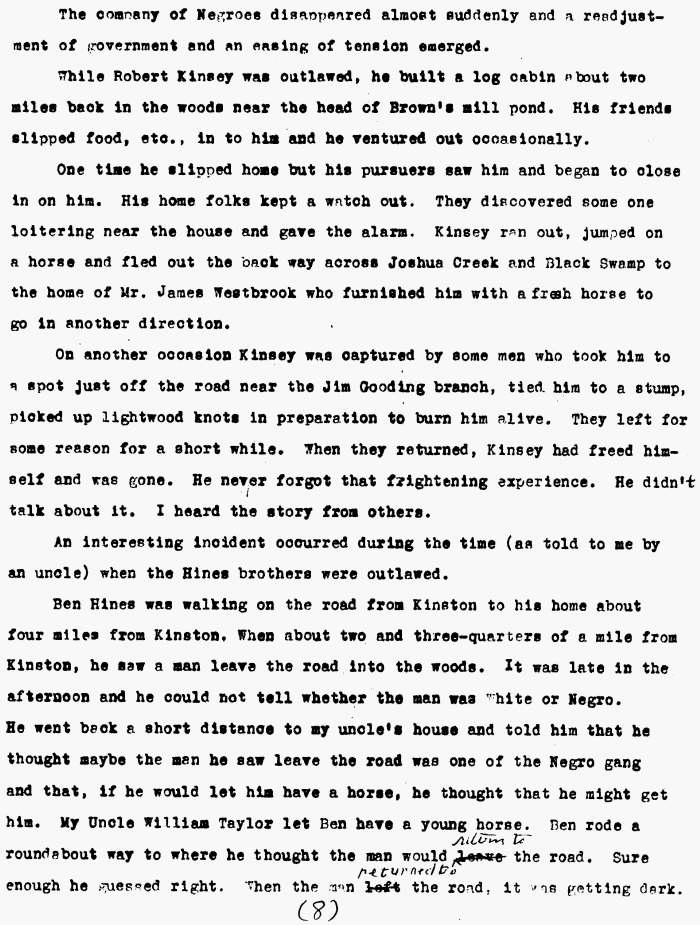
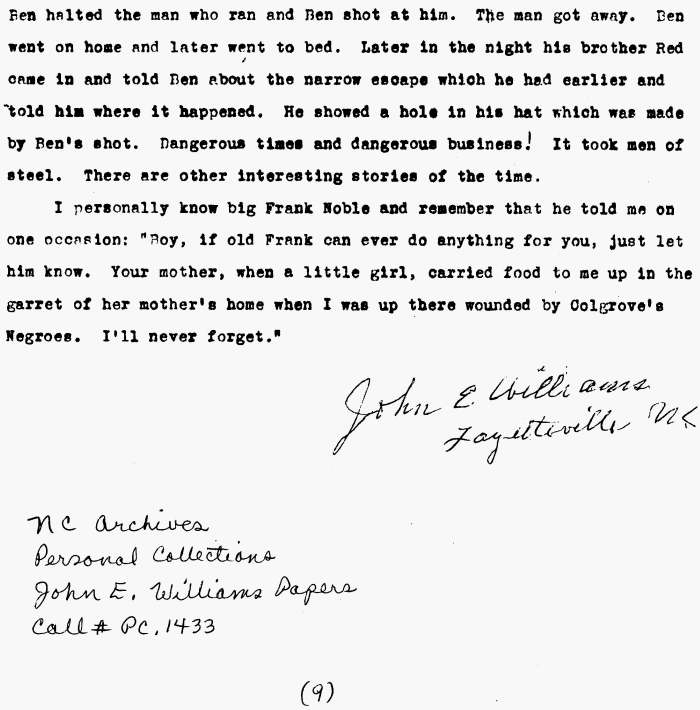
Contributed by Guy Potts
John E. Williams Personal Papers NC Archives Personal Collections John E. Williams Papers Call # PC.1433 Incidents in Connection With General J.G. Foster's Raid from Newbern to Goldsboro in December, 1862 Foster and his forces left Newbern December 11, 1862, on an expedition to destroy the railroad bridge at Goldsboro. They camped the first night a few miles from Newbern, near Deep Gully, on the Trent road to Kinston. The next day, December 12, they resumed the march. My grandfather, Enoch Noble, knowing that they were headed for Kinston, decided to detain them, Foster's Army, in order to give the Confederates protecting Kinston more time for preparations. So he assembled as many old men and young boys as he could with such guns and ammunition as they could find and, knowing the terrain around Resolution Branch, which Foster had to cross (about one and one-half miles from grandfather's home), he stationed his band of men and boys in a gorge just below the crossing - a short distance from Trent River - and awaited Foster's arrival. He told his men not to shoot until they, Foster's men, were in range of their guns and when ordered or directed to take aim at the officers who were riding in front. This they did. Foster's officers were so much surprised (they thought they had been ambushed by Confederate soldiers) they halted and opened fire on the section to no avail. In the meantime grandfather had withdrawn his men to the river swamp where they scattered and hurried away. When he returned to his home, about one and one-half miles toward Kinston, he found that the Yankees were using his home for a hospital to patch up their wounded. My grandmother was assisting in aiding the wounded. In the meantime Foster's soldiers were setting fire to the cotton bales, ginhouse, etc., and stealing everything which looked like it could be eaten. One officer remarked that there was more damage done in a few minutes at Resolution Branch than he had ever seen in such a short time. Grandfather had already taken precaution to hide all his hogs, cows, sheep, horses and mules. He drove some of them into the Trent River swamp and some two to three miles back into the edge of Mussel Shell Pocosin. Foster's men camped the night of the twelfth on parts of my grandfather's, the Huggins and the Pollock families' land. On the thirteenth, they resumed their march toward Kinston. About four miles from Kinston, they encountered Confederate resistance in the vicinity of Wise Fork and South West Creek, where a fierce battle was fought. Farther west they were opposed on another road, at South West Creek by Southern Forces who had thrown up earthworks. Some of Foster's soldiers camped in the old Washington Churchyard the night of the thirteenth. Foster himself was with that group. The next day, the fourteenth, they shelled the area around, some of the shells piercing the roof of my grandmother Williams' home and damaging her mill. They ransacked my grandmother Williams' house, destroying what they couldn't take with them. They took all the provisions, even the dinner which was on the table, all the livestock and some of the Negroes. General Foster told my grandmother that he had heard that she had sons in the Southern Army and that he was going to make it hard for her. She told him that she had four sons and two grandsons in the Army and was proud of it. Her home was taken for a hospital and her daughter Ann was very sick with typhoid fever. Foster ordered her to remove her daughter. She told him that her doctor had told her not to disturb her. Foster insisted and the daughter was moved to a neighbor's home where she died in a few hours. Since everything in her home had been destroyed - even the thirteen feather beds were taken out, cut open and let the wind blow the feathers away. Burial clothes for the daughter had to be obtained from the neighbor. Even the family Bible was destroyed. The four sons were John, Edward, Lott and James (my father); the grandsons were Dr. J.A. Pollock and Dr. Andrew J. Pollock who were the children of my grandmother's daughter, Olive Branch, by a former marriage to Lott Humphrey. Note: Uncle Edward was mortally wounded at Wise Fork in the second battle of Wise Fork March 8, 1865, under General (N.D. Evans written in) R.F. Hoke. The Union commander was General J.D. Cox. John E. Williams Fayetteville, NC NC Archives Personal Collections John E. Williams Papers Call # PC.1433Click on images to enlarge and read






Foster's Raid, from New Bern to Goldsboro, 1862 John E. WILLIAMS account.